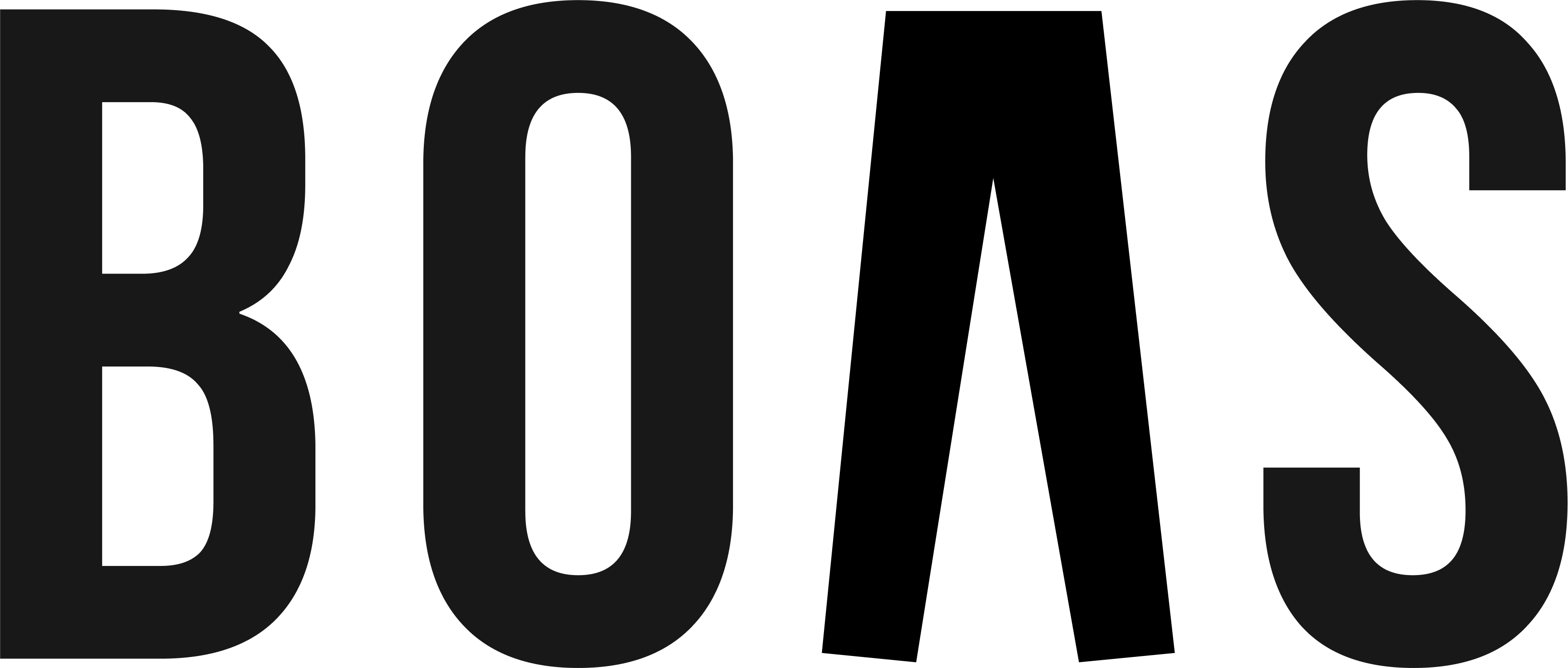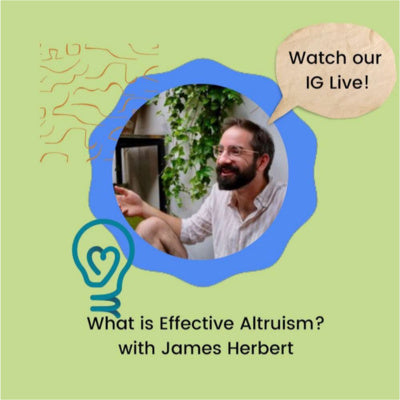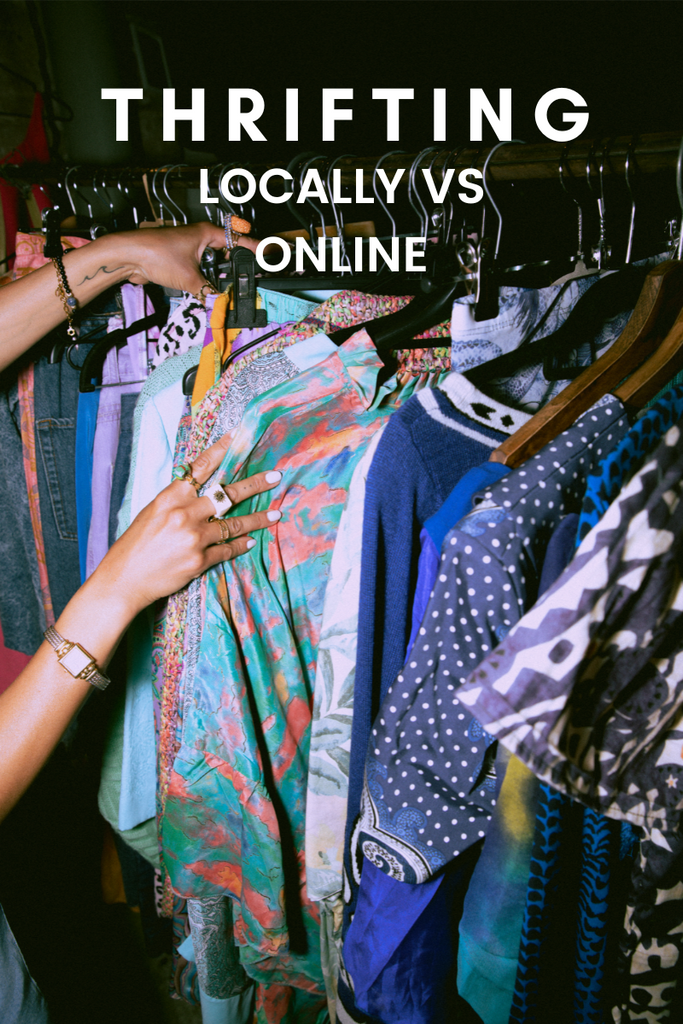Episode transcript
Alexa (BOAS):
Hello to the BOAS family. My name is Alexa and I am a marketing intern for us and the host of this Instagram live series where we talk to thought leaders, entrepreneurs, activists, and other people with grand ideas on how you can save your lives while living yours. And today I am joined by James Herbert, who is the co-director of Effective Altruism in the Netherlands. I'll let you talk all about the work that you do and introduce yourself. If you just want to kick it off and talk a little bit about yourself and how you got connected with BOAS.
James:
Thanks for having me! My name's James, nicely introduced there. I'm co-director of Effective Altruism in the Netherlands. I am originally from the UK as you might have guessed from my accent from the Northeast but I've been living here in the Netherlands for a few years now and together with my co-director we run this community-building organization, which exists to build a community of and for effective altruists here in the Netherlands. What are effective altruists? Well, maybe we'll get into that in the interview, but that is like the headline thing on what we're trying to do here, build a community of and for effective altruists here in the Netherlands.
Alexa (BOAS):
Wonderful segue! So we'll start off by asking what exactly does effective altruism mean? And what inspired you to dedicate your life to this important cause?
James:
There are a bunch of different definitions. And I usually like to say something like, oh, it's all about using careful reasoning and evidence to figure out how to do the most good and then actually do it. Another definition might be that it is a philosophy and a pretty much global community that is focused on maximizing the good or the impact you can have through your career, your projects, or your donations. I think that sort of captures the essence of what it is.
Alexa (BOAS):
A lot of people might think of donations or charity, in a way of it's purely like giving periodically. But it seems like effective altruism is a little bit more calculated or almost like a research experiment in a way. That's really, really interesting to hear about. But what exactly got you into this kind of cause or area?
James:
I think the thing that I find most inspiring about it is the feeling of empowerment I get from it. It's things like when I first read Peter Singer's book, the Australian philosopher, The Life You Can Save. That was where I was introduced to this idea because I am so fortunate and I live in a high-income country, have a reasonable salary and I am in the top few percentiles. I remember when we had the Occupy movement a decade ago and we were over the 99% or something. Well, actually we're closer to the 2% or the top 3% in terms of global income. So I'm incredibly fortunate and not only that, but thanks to that I have the ability to really significantly help others. If I donate a few thousand euros per year, I can literally save someone's life with that money. That's something that I didn't know about. Obviously, everybody wants to be or thinks that saving people's lives is a really exciting and nice thing to be done, but you kind of think maybe you have to be a doctor or a firefighter or like doing something really quite remarkable. But actually, you can do this remarkable thing and we can all do that with a sort of reasonably sized annual donation. That’s what first got me interested in effective altruism, this idea that as individuals, we can do a remarkably large amount of good.
Alexa (BOAS):
That's amazing! And that kind of feeds into my next question. You kind of mentioned how there's this idea that you have to be relatively affluent in order to donate to charitable causes. But are there any other misconceptions about charitable donations or maybe nonprofit work that you think deserve more attention?
James:
I think a big one is just how big the variance is between the effectiveness of different organizations and different interventions for improving the world. You might think that you've got some interventions that are a bit better than others, and some that are okay or whatever, but the best are maybe twice as good as just the average ones. And that's how I used to think about it. But it turns out that the very best could be a thousand times or maybe even 2000 times as effective as just one that you might pick out at random. So a great example of this is that you want to help people who are blind and you have, okay not everybody has this, but say you've got $40,000 to donate. You could do two things. One thing is you could use that money to train a guide dog to help somebody in a high-income country. And this would cost around $40,000. Alternatively, you could use the money to treat trachoma, which is the leading cause of preventable blindness of infectious origin in the world. And this costs around $20 per person cured. That's more than 2,000 times more effective than perhaps what you would most usually think of when you think about how can I help people who have eyesight issues. You might think of a guide dog. But if you do a little bit of research and think about it, you can make your donation go 2,000 times as far as it otherwise might have. I think that's the big misconception that I would like everybody to know and correct on. If you do a little bit of work and you can find incredibly impactful opportunities and you can then almost donate and have the impact that maybe a millionaire would have by donating because you found this intervention which is 2,000 times more effective.
Alexa (BOAS):
That's a wonderful example and it kind of makes me wonder what exactly would effective altruism is or what you personally define as the criteria for effectiveness? Is it necessarily like the number of lives that are impacted or are there other kinds of metrics or ways that you assess that?
James:
This is where it can get super philosophical and there's plenty of debate about what is the ultimate thing that we're aiming for. Certainly, for a long time in public health, like World Health Organization or your national government, they will often optimize for metrics such as quality, which is the quality-adjusted life year. And they will think about how many qualities can I get for a given euro or dollar and that’s how they would assess the effectiveness of different interventions. You can look up the Wikipedia page and stuff to figure out what qualities are exactly. But then other people are maybe arguing, oh, maybe we shouldn't be focusing on qualities, but we should be thinking about the term as “wellbees”, so well-being adjusted life years, and then we should be asking people and finding out what their subjective well-being is. Like how high do they rate their life satisfaction out of ten, if they think back to yesterday how many positive experiences do they have, how many negative experiences do they have? And then we can try and quantify this. Obviously, it's always a bit reductive quantification things but it's usually better than doing nothing, and then to optimise interventions that improve human well-being. There are two examples; healthy life years, qualities or subjective well-being (wellbees) or the lives saved. Different organizations have all income doubling. Usually, organizations might come up with a thing that combines all four of these different ways of doing things, and to try and compare different interventions in different areas. But then it gets quite technical and complicated and I'm not best qualified to speak about that. But basically, there are different perspectives on this question of what is good or what should you be optimizing for.
Alexa (BOAS):
That is a really interesting philosophical question that I've never really thought about. So thank you for sharing. We’re kind of getting into the meat of it. What exactly does effective altruism do as an organization? And if any newer initiatives are in the works that you'd like to talk about, feel free to share that as well.
James:
It's useful to think that effective altruism is definitely more than just one organization. It's a community, it's a movement, it's a philosophy. Some organizations are pivotal in the community. But the movement as a whole is much more than any one of these organizations. We're just the local organization here in the Netherlands and we focus on community building, but there are other organizations in the Netherlands doing other things. But getting back to your question, what do we do? Well, one thing that might be interesting to talk about is what we have done so far. Effective altruism has kind of been going on for about 10 years now. So in that time, we've prevented hundreds of thousands of deaths from neglected diseases such as malaria through funding organizations like the Against Malaria Foundation. We've founded prestigious research institutions, and organizations such as the University of Oxford, which do cutting-edge research, it's called global priorities research, basically trying to find and compare the most pressing problems that we face in the world today. There aren't that many organizations actually doing this really fundamental question. So we founded organizations that are doing that research. And we've also done things like funding other researchers who are trying to figure out how we can ensure that new technologies such as artificial intelligence can be used to really benefit humankind rather than cause damage to humankind. So those are like things that we've done so far. And there'll be more of that thinking about how can we improve institutional decision-making, trying to make sure that important organizations in the world such as governments, multinational government organizations, or even huge companies have really good ways of making high-quality decisions because these are high-leverage things. If you can improve how a government makes its decisions by just a percentage point or whatever, that has huge consequences for the well-being of the people that that government is responsible for.
Alexa (BOAS):
A big part of your work that you've mentioned is community building. Are any particular demographics or stakeholders that you work with that are particularly excited about this movement?
James:
There's been some early research into what types of people are particularly interested in effective altruism, to see whether it varies according to gender or race or educational background or professional background or income status or nationality or any one of these uh factors. This is not my complete area of expertise but if I remember correctly it doesn't seem to cluster around one particular, demographic group or anything like that. Instead, there is a subset of the population that seems to be super altruistic and super effectiveness-focused. The movement has a really good name, it is effective altruism. And it seems that the people who are excited by this idea are very focused on being effective and very focused on being altruistic. For example, someone who's particularly altruistic would be willing to invest significant resources in thinking about and then doing things that help others with impartial regard to others. So it's not necessarily people that are in their immediate vicinity or people that are living here in the world today. It could be future generations or it could be people living in low-income countries on the other side of the world. People who are strongly and partially altruistic and then people who really have that effectiveness focus. These might be people who are willing to make the hard choices around prioritization. There are all kinds of issues out there that are important and that we might want to contribute to, but we know that if we prioritize what we work on, we'll be able to do more good. And that's a hard decision to make. For people to make that decision, they have to have just like a strong effectiveness focus. We don't think that the ideas of effective altruism only really align with one very narrow demographic. Having said that, here in the Netherlands, my co-director and I, we started in February this year. For this first phase, we really focused on student groups because we both had experience with student organizing when we were students ourselves, and we've seen lots of success with student groups elsewhere in the world. And also, lots of students are really interested in this question of how can I have a really impactful career? And that's something that we're really focused on as well. So there was a lot of alignment there. We could help the students and the students could help us. That has been our focus initially and now we're looking more at professionals, people who have left university and are already established in their careers.
Alexa (BOAS):
I've actually just graduated from university and it seems like a really natural place to start. As an institution it kind of seems like a little incubator for a broader community and the allocation of funds within a university seems like it could be a fertile ground to test out effective altruism and with the demographic of students that are potentially interested in this area.
If you could talk a little bit more about your community-building strategy and also if you could potentially tie in what role an online marketplace like BOAS could play in this strategy, or if the digital realm plays a role in your community-building strategy.
James:
Basically building a strategy is to make sure that everybody who is in the Netherlands and is interested in effective altruism is connected and knows about a community that can help them maximize the amount of good that they achieve. That is our community-building strategy. We want everybody when they hear this phrase and they hear it described, they're like, "Oh, that sounds really good. I want to be involved in that." They find us. We can provide them with educational materials. We can provide them with connections. We can provide them with advice and then they can embark on making super effective donations or having a very impactful career. In terms of what an online marketplace could do to support us with that. I guess an obvious one, maybe it's cheeky of me, to ask whereas you could sponsor us for example, or as I know, you donate your profits and so you perhaps don't have to sponsor us directly but a portion of your profits could go towards the charities that we recommend and the interventions that we recommend.
Alexa (BOAS):
A little bit of context for the viewers - our company BOAS operates in what we call a profit-for-nonprofit model. 100% of our profits are donated to charity and rather than having typical investors, we consider our shareholders to be effective charities. That's kind of like a part of our behind-the-scenes mission.
If you could talk a little bit about if effective altruism has a stance necessarily on the power of consumption to create a change or support charitable causes, kind of similar to what BOAS is doing.
James:
First of all, it's always great when people are thinking about like helping others. I think that's the first thing. And I'm all for that. I think one caveat I'd add to it is that now I'm trying to think how to phrase this exactly, but there are various ways, we've got limited resources that we can spend on improving the world. And then you want to find the most optimal way of doing things. It's not always the case, but often it isn't the case that optimizing your consumption habits is where you're going to find the most gains. This kind of makes sense if you think about it because the things that we consume aren't like optimized for doing bad. So if we improve the way in which we do these things, then that's not going to be where the biggest gains are. The biggest gains are always going to be with embarking on a particularly impactful career in a particularly impactful organization that is implementing really good solutions to really important problems. That's always just going to be the best way of making a difference. But if you're going to be making a purchase, and there are two companies out there and all of the things being equal at the same cost and stuff and it's the same effort to use. And one that you know is going to donate its profits to do a good cause then you might as well go for that one that's going to donate its profits to do a good cause.
Alexa (BOAS):
As a part of our mission and some of the other organizations we work with such as the consumer power initiative, our goal is to make it a natural and easy choice to support charitable organizations just by doing the things that you would otherwise do.
One final thing I wanted to ask you is if there's anything that our customers, which we call our lifesavers, can do to support your organization while potentially coming from different areas of the world.
James:
Don't feel obliged to support our organization. If you're interested in effective altruism, we're here to help you guys. We've got a new website launching tomorrow, on that website, you'll be able to sign up for opportunities. For example, we run an introductory fellowship where it's just basically a great opportunity to engage with some really exciting ideas about how to do good better. And you'll meet up with a few like-minded individuals over the course of a few weeks and have a facilitator and learn all about doing good better. So if that's something that sounds good to you, please do sign up for that. Alternatively, if you're elsewhere in the world, go to effectivealtruism.org and you can find all of your local groups in your area. There's also a virtual version of our fellowship so you can do it from anywhere in the world. So that's a number - learn a bit more about effective altruism and realize how empowering it can be.
The second thing is if you have money to donate, check out, if you're in the Netherlands, our sister organization, which is there to provide advice on making effective donations. Or if you're outside of the Netherlands, check out the website givingwhatwecan.org, which does the same thing, but for a more international audience. And maybe consider taking a pledge to try giving like 1% or 2% of your income for the next six months to a particularly effective cause. I can guarantee you'll feel great having done so.
BOAS' Blog
Newsletter
We strive to inspire with our emails, so we don't send many and they're meant to make you buy less and buy better, so no sales emails.



















